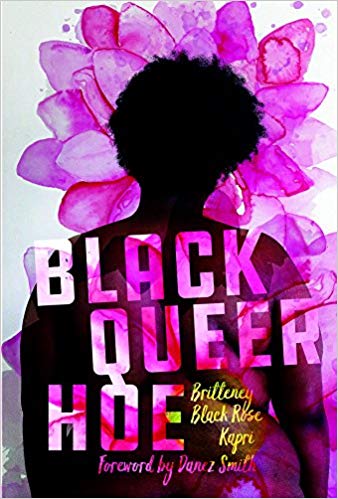- Home
- About
- Submit
- Features
- Interviews
- Book Reviews
- Previous Issues
- Blog
- Contact
-
Issue #25 Spring 2023
- Issue #25 Art Spring 2023 >
-
Issue #25 Poetry Spring 2023
>
- Emma Bolden Spring 2023
- Ronda Piszk Broatch Spring 2023
- M. Cynthia Cheung Spring 2023
- Flower Conroy Spring 2023
- Jill Crammond Spring 2023
- Sandra Crouch Spring 2023
- Satya Dash Spring 2023
- Rita Feinstein Spring 2023
- Dan Fliegel Spring 2023
- Lisa Higgs Spring 2023
- Dennis Hinrichsen Spring 2023
- Mara Jebsen Spring 2023
- Abriana Jetté Spring 2023
- Letitia Jiju Spring 2023
- E.W.I. Johnson Spring 2023
- Ashley Kunsa Spring 2023
- Susanna Lang Spring 2023
- James Fujinami Moore Spring 2023
- Matthew Murrey Spring 2023
- Pablo Otavalo Spring 2023
- Heather Qin Spring 2023
- Wesley Sexton Spring 2023
- Ashish Singh Spring 2023
- Sara Sowers-Wills Spring 2023
- Sydney Vogl Spring 2023
- Elinor Ann Walker Spring 2023
- Andrew Wells Spring 2023
- Erin Wilson Spring 2023
- Marina Hope Wilson Spring 2023
- David Wojciechowski Spring 2023
- Jules Wood Spring 2023
- Ellen Zhang Spring 2023
- BJ Zhou Spring 2023
- Jane Zwart Spring 2023
- Issue #25 Fiction Spring 2023 >
- Issue #25 Nonfiction Spring 2023 >
-
Issue #26 Fall 2023
- Issue #26 Art Fall 2023 >
-
Issue #26 Poetry Fall 2023
>
- Fasasi Abdulrosheed Oladipupo Fall 2023
- Christopher Ankney Fall 2023
- Magdalena Arias Vásquez Fall 2023
- John Peter Beck Fall 2023
- Mihir Bellamkonda Fall 2023
- Benjamin Bellas Fall 2023
- Michael Carson Fall 2023
- Kevin Clark Fall 2023
- Aaron Coleman Fall 2023
- Mark DeCarteret Fall 2023
- Denise Duhamel Fall 2023
- Brandel France de Bravo Fall 2023
- Tina Gross Fall 2023
- Amorak Huey Fall 2023
- James Kimbrell Fall 2023
- Casey Knott Fall 2023
- Stephen Lackaye Fall 2023
- Cynthia Manick Fall 2023
- Savannah McClendon Fall 2023
- John Muellner Fall 2023
- Mollie O’Leary Fall 2023
- Joel Peckham Fall 2023
- Natalia Prusinska Fall 2023
- henry 7. reneau, jr. Fall 2023
- Esther Sadoff Fall 2023
- Hilary Sallick Fall 2023
- Kelly R. Samuels Fall 2023
- Issue #26 Fiction Fall 2023 >
-
Issue #27 Spring 2024
- Issue #27 Art Spring 2024 >
-
Issue #27 Poetry Spring 2024
>
- Terry Belew Spring 2024
- Dustin Brookshire & Diamond Forde Spring 2024 Spring 2024
- Dustin Brookshire & Caridad Moro-Gronlier Spring 2024 Spring 2024
- Charlie Coleman Spring 2024
- Isabelle Doyle Spring 2024
- Reyzl Grace Spring 2024
- Kelly Gray Spring 2024
- Meredith Herndon Spring 2024
- Mina Khan Spring 2024
- Anoushka Kumar Spring 2024
- Cate Latimer Spring 2024
- BEE LB Spring 2024
- Grace Marie Liu Spring 2024
- Sarah Mills Spring 2024
- Faisal Mohyuddin 2024
- Marcus Myers Spring 2024
- Mike Puican Spring 2024
- Sarah Sorensen Spring 2024
- Lynne Thompson Spring 2024
- Natalie Tombasco Spring 2024
- Alexandra van de Kamp Spring 2024
- Donna Vorreyer Spring 2024
- Fiction #27 Spring 2024 >
- Nonfiction #27 Spring 2024 >
Book Review: Black Queer Hoe by Britteney Black Rose Kapri
Britteney Black Rose Kapri is author of Winona and Winthrop (New School Poetics, 2014) and Black Queer Hoe (Haymarket Press, 2018). Kapri is a 2015 Rona Jaffe Writers Award Recipient. Her work has been published in the Breakbeat Poets volume One & Two, Poetry Magazine, Vinyl, Day One, Seven Scribes, The Offing, and Kinfolks Quarterly. She is also a staff member for Black Nerd Problems and Pink Door Woman’s Writing Retreat.
|
Review
|
A Review of Britteney Black Rose Kapri's Black Queer Hoe
Britteney Black Rose Kapri’s Black Queer Hoe is a lyrical celebration of Blackness, queerness, and sexual liberation. Kapri’s collection of poems contains tweets alongside her words, reinforcing her complete experience in upholding a fight against anti-blackness, homophobia, misogyny, and slut-shaming. Kapri’s diction is uncensored and unapologetic, reinforcing the reclamation process each of her poems celebrates, and presenting the liberty in living a life outside of rigid boundaries. To begin, Kapri’s list poem “reasons imma Hoe,” is a sixteen-line stanza, offering thirty-four direct reasons for being a “hoe,” while refusing to be interrupted by any stanza-breaks. Kapri’s speaker uses an active voice, denying hesitation, and declining any more explanation needed than what is given: i fucked someone else. i was walking. he asked a question The poem defines what a “hoe” is by providing the reasons other people have given, and by speaking other people’s comments onto the page, Kapri’s speaker reclaims the word “hoe,” and the actions associated with being a “hoe.” It becomes quickly evident that the word “hoe” is spoken mostly by men who disapprove of the speaker, mainly for just existing. The speaker’s list is unafraid and precise: “i loved a woman. i / touched a woman. i left a woman. i fucked more people / than him.” Kapri’s list poem “reasons imma Hoe” teaches the reader that a “hoe” is predominantly a word used by someone else out of spite, and the word carries no real, defining meaning, other than to degrade women for living and enjoying life, as Kapri’s speaker reflects.
Similar to “reasons imma Hoe,” Kapri’s list poem “Queer enough” tackles misperceptions and misidentification of the speaker's sexual identity, reclaiming her queerness. In collecting receipts of unnecessary commentary from judgmental outsiders, "Queer Enough" is highlighting the absurdity in the remarks. The first line the speaker repeats shows the length of people’s commentary, illustrating the internalization of people’s judgements: “sometimes i think i haven’t loved enough women to call / myself Queer.” Making note of how people’s comments become internalized, demonstrates the insidious ways people police and dictate queerness, even when sexuality is known to be actively fluid. The list poem continues to build on more reasons, signifying the extent of the speaker’s feeling of imbalance with the self-identification of queerness: haven’t ate enough pussy. haven’t gone to enough gay Kapri’s list poem demands the question: if the recourse is to police people’s queerness, then doesn’t the judgement push people back into the ‘closet,’ forcing people who desire to express their queerness into heteronormative confines? Kapri’s “Queer enough” recognizes the fluidity and extent of queerness, accepting the backlash that comes from both ends of the sexuality spectrum, but with the rejection of fitting into either end of the binary.
Britteney Black Rose Kapri’s Black Queer Hoe is an immediate attention-grabber, capturing the reader through candid language and experiences. Black Queer Hoe is truly a celebration of existing, surviving, and refusing to be erased into the Anglo-heteronormative void. As Kapri’s speaker states in “a reading guide: for white people reading my book:” “this book isn’t an invitation. i am / not your therapist.” Black Queer Hoe proves that the interaction between reader and writer is only valid for those willing to listen to Kapri’s language and truth. Black Queer Hoe is for the reader ready to celebrate the life of everyone who identifies as Black, Queer, and Hoe. |
|
Miguel is the Asst. Managing Editor and Book Review Editor for Jet Fuel Review. As an editor, one of his main concerns is giving a space to marginalized voices, centralizing on narratives often ignored. He loves reading radical, unapologetic writers, who explore the emotional and intellectual stresses within political identities and systemic realities. His own writings can be found in OUT / CAST: A Journal of Queer Midwestern Writing and Art, The Rising Phoenix Review, and Rogue Agent. He writes for the Jet Fuel Review blog in Not Your Binary: A QTPOC Reading Column.
|
- Home
- About
- Submit
- Features
- Interviews
- Book Reviews
- Previous Issues
- Blog
- Contact
-
Issue #25 Spring 2023
- Issue #25 Art Spring 2023 >
-
Issue #25 Poetry Spring 2023
>
- Emma Bolden Spring 2023
- Ronda Piszk Broatch Spring 2023
- M. Cynthia Cheung Spring 2023
- Flower Conroy Spring 2023
- Jill Crammond Spring 2023
- Sandra Crouch Spring 2023
- Satya Dash Spring 2023
- Rita Feinstein Spring 2023
- Dan Fliegel Spring 2023
- Lisa Higgs Spring 2023
- Dennis Hinrichsen Spring 2023
- Mara Jebsen Spring 2023
- Abriana Jetté Spring 2023
- Letitia Jiju Spring 2023
- E.W.I. Johnson Spring 2023
- Ashley Kunsa Spring 2023
- Susanna Lang Spring 2023
- James Fujinami Moore Spring 2023
- Matthew Murrey Spring 2023
- Pablo Otavalo Spring 2023
- Heather Qin Spring 2023
- Wesley Sexton Spring 2023
- Ashish Singh Spring 2023
- Sara Sowers-Wills Spring 2023
- Sydney Vogl Spring 2023
- Elinor Ann Walker Spring 2023
- Andrew Wells Spring 2023
- Erin Wilson Spring 2023
- Marina Hope Wilson Spring 2023
- David Wojciechowski Spring 2023
- Jules Wood Spring 2023
- Ellen Zhang Spring 2023
- BJ Zhou Spring 2023
- Jane Zwart Spring 2023
- Issue #25 Fiction Spring 2023 >
- Issue #25 Nonfiction Spring 2023 >
-
Issue #26 Fall 2023
- Issue #26 Art Fall 2023 >
-
Issue #26 Poetry Fall 2023
>
- Fasasi Abdulrosheed Oladipupo Fall 2023
- Christopher Ankney Fall 2023
- Magdalena Arias Vásquez Fall 2023
- John Peter Beck Fall 2023
- Mihir Bellamkonda Fall 2023
- Benjamin Bellas Fall 2023
- Michael Carson Fall 2023
- Kevin Clark Fall 2023
- Aaron Coleman Fall 2023
- Mark DeCarteret Fall 2023
- Denise Duhamel Fall 2023
- Brandel France de Bravo Fall 2023
- Tina Gross Fall 2023
- Amorak Huey Fall 2023
- James Kimbrell Fall 2023
- Casey Knott Fall 2023
- Stephen Lackaye Fall 2023
- Cynthia Manick Fall 2023
- Savannah McClendon Fall 2023
- John Muellner Fall 2023
- Mollie O’Leary Fall 2023
- Joel Peckham Fall 2023
- Natalia Prusinska Fall 2023
- henry 7. reneau, jr. Fall 2023
- Esther Sadoff Fall 2023
- Hilary Sallick Fall 2023
- Kelly R. Samuels Fall 2023
- Issue #26 Fiction Fall 2023 >
-
Issue #27 Spring 2024
- Issue #27 Art Spring 2024 >
-
Issue #27 Poetry Spring 2024
>
- Terry Belew Spring 2024
- Dustin Brookshire & Diamond Forde Spring 2024 Spring 2024
- Dustin Brookshire & Caridad Moro-Gronlier Spring 2024 Spring 2024
- Charlie Coleman Spring 2024
- Isabelle Doyle Spring 2024
- Reyzl Grace Spring 2024
- Kelly Gray Spring 2024
- Meredith Herndon Spring 2024
- Mina Khan Spring 2024
- Anoushka Kumar Spring 2024
- Cate Latimer Spring 2024
- BEE LB Spring 2024
- Grace Marie Liu Spring 2024
- Sarah Mills Spring 2024
- Faisal Mohyuddin 2024
- Marcus Myers Spring 2024
- Mike Puican Spring 2024
- Sarah Sorensen Spring 2024
- Lynne Thompson Spring 2024
- Natalie Tombasco Spring 2024
- Alexandra van de Kamp Spring 2024
- Donna Vorreyer Spring 2024
- Fiction #27 Spring 2024 >
- Nonfiction #27 Spring 2024 >


